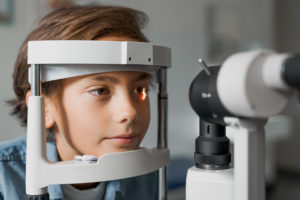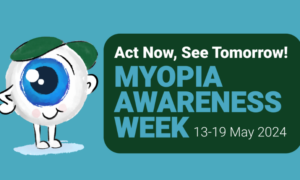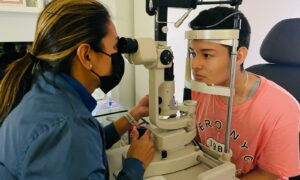March 22, 2021

SAN RAMON — Global Business Media, with support from CooperVision, has published a new special report designed to help non-ophthalmic health care professionals treat myopia in children. The report, entitled “Advancing the Treatment of Myopia in Children,” is geared toward pediatricians, nurses, and other health care providers. The main goal of the publication is to raise awareness about the severity and prevalence of myopia worldwide.
“Addressing the problem of myopia progression requires collaboration across the health care spectrum, with physicians, nurses, and other care providers working alongside optometrists and ophthalmologists,” said Gary Orsborn, OD, Vice President of Global Professional, Medical & Clinical Affairs for CooperVision. “As a global research, clinical, and education leader on the topic, it’s our privilege to gather several experts to succinctly frame the issue, highlight the science, and review intervention options. Our hope is this special report is one more step toward establishing myopia management as standard of care by eye care professionals for the millions of children who are affected.”
The report includes insights from four global experts on myopia management:
Dr. Annegret Dahlmann-Noor, Consultant Ophthalmologist and Director of Children’s Service at Moorfields Eye Hospital, U.K., opens the report by writing on why myopia matters. She contends that myopia is no longer an inconvenience, since its constant march will place increased burdens on quality of life and cause a rise in healthcare expenditure to both individuals and health care systems. As societal awareness increases and low-risk approaches emerge, identifying and treating children will be more commonplace.
Professor Nicola Logan of the School of Optometry at Aston University (U.K.) explores the range of myopia management interventions becoming more available to qualified health care professionals to address the surge in myopia prevalence with their young patients. Environment and lifestyle play a key role in the condition’s development,1 with consideration for offering behavioral interventions such as increased time spent outdoors and reduced time on near work. She then touches on optical and pharmaceutical interventions to slow myopia progression, including specialized spectacle lenses, dual-focus, and multifocal contact lenses for daytime use, orthokeratology contact lenses for overnight corneal reshaping, and atropine.
Dr. Kate Gifford, the founder of Myopia Profile and a practicing optometrist in Australia, authors a risk-to-benefit comparison of myopia-controlling contact lenses. After reviewing multiple studies regarding contact lens safety in children and teens, she weighs short-term and long-term challenges that may arise with daily wear. Ultimately, Dr. Gifford concludes that the functional, psychological and preventative eye health benefits of myopia control contact lenses present a compelling first line management option for children under 12 with progressive myopia.
Professor Mark Bullimore, a prolific myopia consultant and Adjunct Professor at the University of Houston (U.S.), shares why every diopter of myopia progression matters in response to a common question: “When we can correct myopia with spectacles, contact lenses, and refractive surgery, should we worry about slowing its progression?” His modeling indicates that in 30 years, approximately one third of all visual impairment will be attributable to myopia; slowing it by even one diopter could reduce the prevalence of such impairment by 10 percent.2
“This report lays bare a real urgency to act by all health professionals, who can gain a better grasp of myopia progression’s expanding impact, help encourage routine eye examinations for children, and refer parents to optometry and ophthalmology peers for counsel and care,” said Dr. Orsborn.
1Flitcroft DI. The complex interactions of retinal, optical and environmental factors in myopia aetiology. Prog Retin Eye Res. Published online 2012.
2Bullimore MA, Brennan NA. Myopia Control: Why Each Diopter Matters. Optom Vis Sci 2019;96:463-5.













